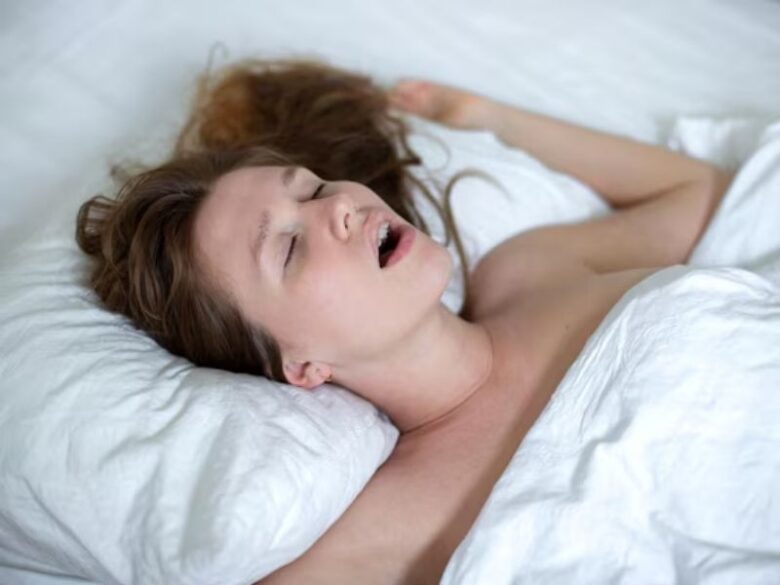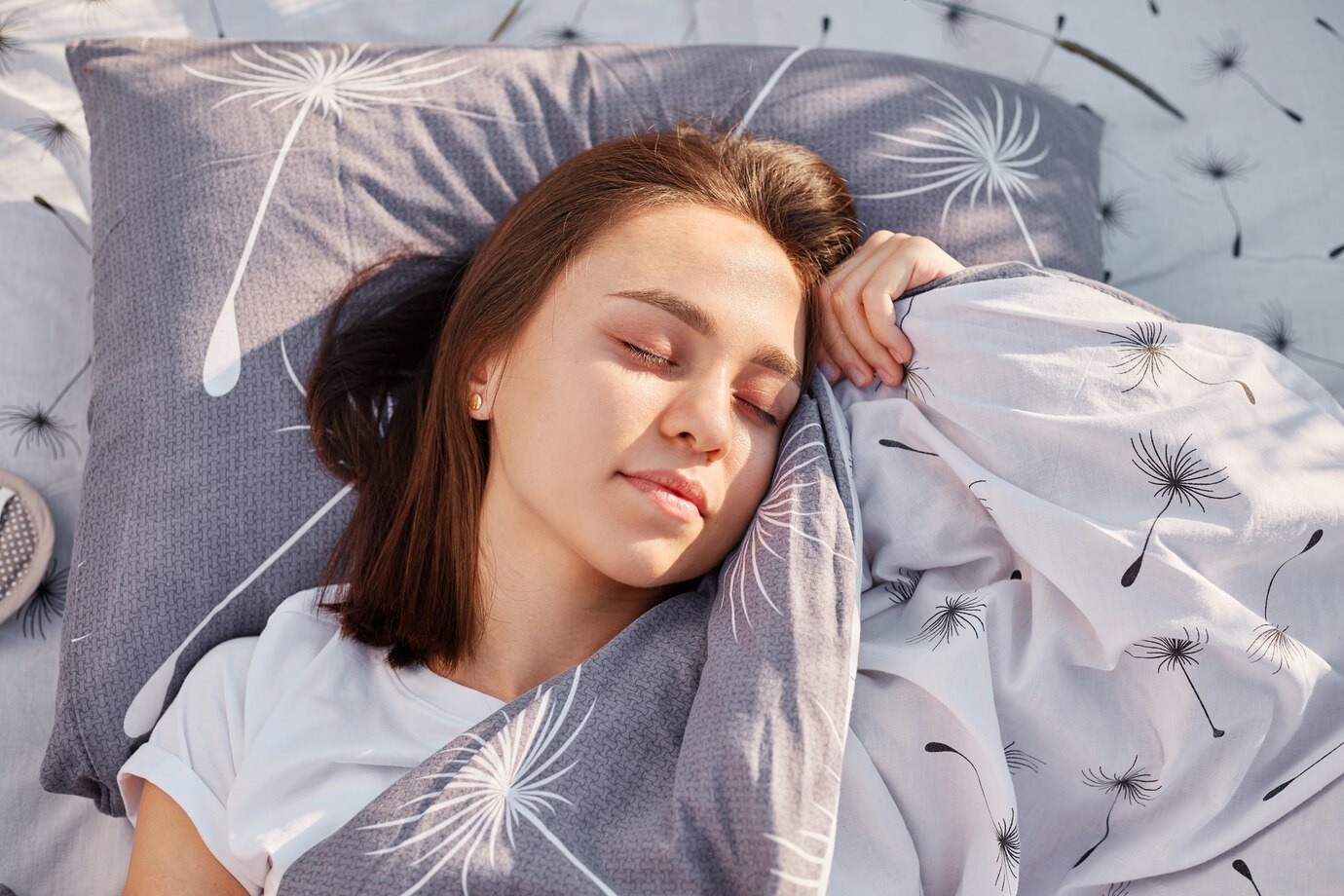Mouth tape is an adhesive strip created to softly close your lips while you sleep. The purpose of mouth tape is to encourage nasal breathing by preventing the mouth from opening unconsciously during the night. Many people breathe through their mouth while they sleep, often without realizing it, which can lead to a variety of issues like snoring, dry mouth, and poor-quality sleep. By keeping the lips closed, mouth tape naturally shifts breathing to the nose, which has several health benefits.
Nasal breathing, as opposed to mouth breathing, filters and humidifies the air more effectively, ensuring a smoother and healthier intake of oxygen. The nose also produces nitric oxide, which helps improve oxygen absorption in the lungs, making breathing more efficient. Mouth tape can be especially helpful for people who have a habit of breathing through their mouths due to allergies, congestion, or other reasons.
It serves as a gentle reminder to maintain proper breathing patterns throughout the night, promoting restful and uninterrupted sleep. For those seeking to enhance their sleep quality, mouth tape is a non-invasive, easy-to-use tool that can encourage healthier breathing habits.
Contents
The Science Behind Nasal Breathing vs. Mouth Breathing

Source: freepik.com
Nasal breathing plays a vital role in maintaining overall health, as it is the body’s natural way of filtering and regulating the air we breathe. When you breathe through your nose, the air is heated, filtered, and moistened before it reaches your lungs. This process helps to protect your respiratory system from allergens, dust, and other harmful particles. Nasal breathing also triggers the production of nitric oxide, which enhances blood circulation and aids in oxygen absorption.
On the other hand, mouth breathing during sleep can have several negative effects. It often leads to snoring, dry mouth, and a less restful sleep. Since the mouth doesn’t filter air as effectively as the nose, mouth breathers are more prone to respiratory infections and dryness in the throat. Prolonged mouth breathing can interfere with the body’s oxygen and carbon dioxide balance, potentially causing sleep disruptions.
Mouth tape encourages proper breathing mechanics by gently closing the lips, forcing you to breathe through your nose. This simple shift can enhance sleep quality, reduce snoring, and prevent the uncomfortable symptoms associated with mouth breathing, such as dry mouth and sore throat. It promotes a natural, healthier way of breathing that supports better rest and overall well-being.
Health Benefits of Using Mouth Tape for Sleep

Source: freepik.com
Using mouth tape during sleep offers several health benefits, primarily by promoting nasal breathing. A key benefit is the reduction of snoring. Mouth breathing is often linked to snoring because it creates turbulence in the airways, leading to vibrations that cause the snoring sound. By keeping the mouth closed, mouth tape helps minimize these vibrations, allowing for quieter and more restful sleep.
Another important benefit of mouth tape is the prevention of dry mouth and throat discomfort. When you breathe through your mouth at night, the air quickly dries out the tissues in your mouth and throat. This can lead to soreness, irritation, and even an increased risk of oral health issues like cavities. Breathing through the nose helps maintain moisture in these tissues, decreasing the chances of discomfort.
In addition, nasal breathing, facilitated by mouth tape, improves oxygen intake. The nose filters, warms, and humidifies the air, making breathing more efficient. This can lead to better oxygen absorption, which in turn enhances sleep quality. Improved oxygenation means more restorative sleep, helping you wake up feeling refreshed and energized. Overall, using mouth tape is a simple way to encourage healthier breathing habits and enjoy a better night’s sleep.
Who Should Consider Using Mouth Tape?

Source: freepik.com
Mouth tape can be particularly beneficial for individuals who struggle with certain sleep-related issues. For example, habitual snorers may find relief by using mouth tape, as it encourages nasal breathing, which reduces airway obstruction that leads to snoring. Additionally, people with mild cases of sleep apnea, who experience occasional pauses in breathing due to airway blockages, may also benefit from mouth taping. By promoting nose breathing, mouth tape can help keep the airways open, making sleep more peaceful.
Mouth taping can also benefit those who experience dry mouth or throat irritation due to mouth breathing during sleep. Mouth breathers often wake up with a dry mouth, as the air passing through the open mouth can quickly dry out the tissues. By keeping the mouth closed, mouth tape helps maintain moisture and prevents discomfort upon waking.
Moreover, mouth tape is useful in specific situations such as allergy season or when nasal congestion is mild, making it harder to breathe properly through the nose. People who struggle to maintain proper nasal breathing due to congestion may use mouth tape to encourage better airflow. Anyone seeking to improve sleep quality, reduce snoring, or address the side effects of mouth breathing should consider trying mouth tape as a simple and non-invasive solution.
Safety Tips and Best Practices for Using Mouth Tape

Source: freepik.com
When using mouth tape for sleep, it is important to apply it correctly to ensure comfort and effectiveness. Start by selecting a strip that is designed specifically for mouth taping. These tapes are usually gentle on the skin and easy to remove in the morning. Ensure your lips are clean and dry before applying the tape to ensure proper adhesion. Place the strip horizontally across your lips, covering the entire mouth area to keep your lips sealed during sleep.
Choosing the right type of mouth tape is crucial for a positive experience. Look for hypoallergenic options that are specifically designed for skin application. Avoid using household tapes, as they may cause skin irritation or be too difficult to remove. Comfort is key, so you may want to experiment with different brands and styles to find the one that works best for you.
In conclusion, while mouth tape is generally safe for most people, it is important to consult a healthcare professional if you have concerns about its use, especially if you have underlying respiratory issues. Proper application and choosing the right product can help ensure a comfortable experience, promoting better sleep and healthier breathing habits.
